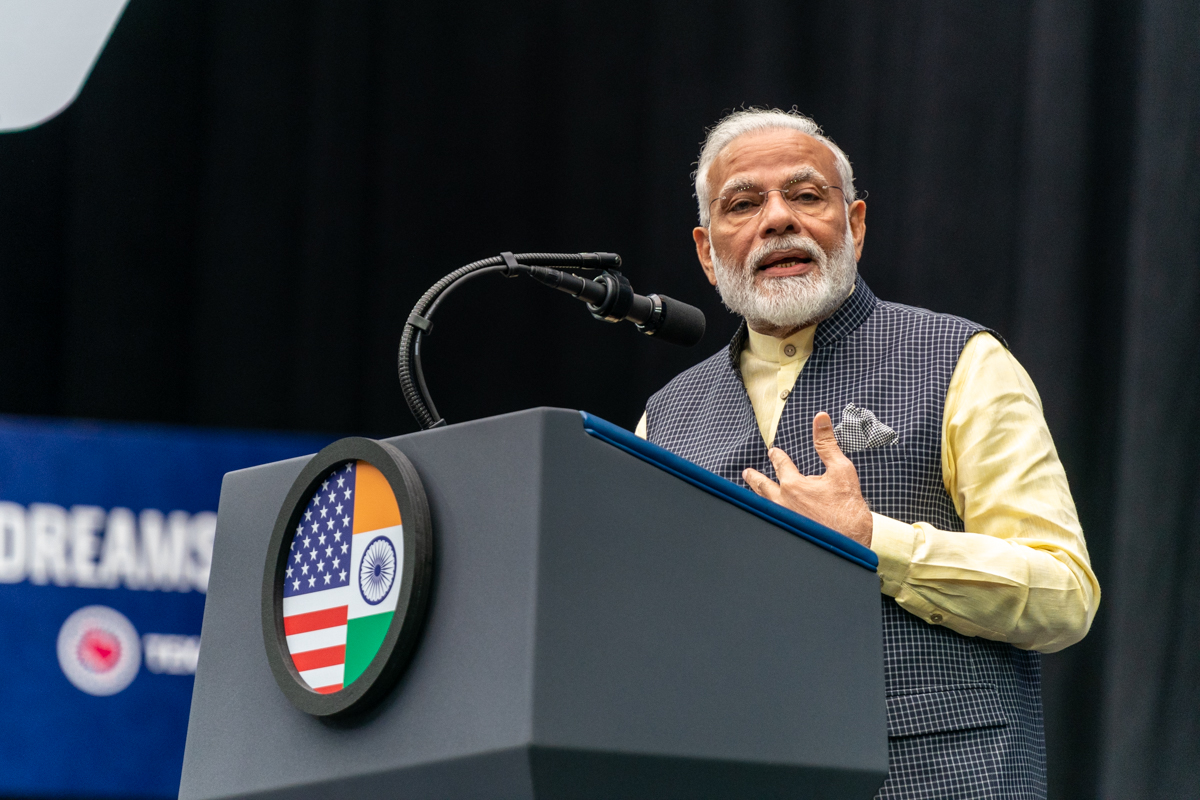News
India’s Surprising Election Results A “Watershed Moment” – Ash Center

It seems that incumbent Prime Minister Narendra Modi’s majority in parliament shrank significantly, in distinction to expectations that this election would cement his maintain on energy. Why has he fallen wanting expectations?
Gautam Nair: As in lots of earlier elections, India’s voters have sprung a shock. It was broadly anticipated that the Bharatiya Janata Social gathering or BJP would return to energy within the Lok Sabha, India’s nationwide parliament, partly due to the non-public recognition of Prime Minister Narendra Modi. The BJP set expectations excessive with the slogan “Ab ki baar, char sau (400) paar,” promising that it will cross 400 seats in India’s 543-member nationwide parliament. For comparability, the BJP gained 303 seats within the 2019 elections (31 greater than the 272 majority mark) and its allies pocketed an extra 50 seats. The 2014 and 2019 elections, which inaugurated after which consolidated the present period of BJP dominance, have been a shock to students, as a result of most anticipated the continuation of the period of fragmented coalitions that dominated India for the quarter century earlier than. The truth that the BJP and Modi have been in a position to overcome India’s social and political heterogeneity to construct huge majorities was thus exceptional.
After a prolonged multi-phase election in 2024, polls closed on June 1. Exit surveys that have been broadcast throughout the media urged the BJP would come near its aim and considerably improve its majority, probably opening the way in which far-reaching adjustments in India’s political establishments throughout 5 extra years of BJP rule. As a substitute, the BJP finds itself with a diminished majority, and appears set to win about 240 seats, with its allies within the Nationwide Democratic Alliance (NDA) coalition accounting for about 50 extra. Instantly, Modi will seemingly be a Prime Minister on the head of a real coalition and face a rejuvenated opposition alliance that has gained about 233 seats.
Already there may be a lot speak of an NDA authorities somewhat than a BJP or Modi authorities, even amongst BJP leaders. Nonetheless the BJP will seemingly lead the federal government on the nationwide stage and for the primary time within the state of Odisha (which held simultaneous state elections) and expanded its attain elsewhere.
The elections are a watershed second.
I, for one, have felt that speak of the world’s largest democracy’s putative descent into authoritarianism was untimely due to the competitors that the BJP has constantly confronted, particularly on the state stage—and India’s many inside divisions that may be mobilized by canny political entrepreneurs.
Gautam Nair
Assistant Professor of Public Coverage
How was India’s fractured opposition in a position to mount such a seemingly efficient marketing campaign in opposition to Modi and his governing BJP?
Nair: I, for one, have felt that speak of the world’s largest democracy’s putative descent into authoritarianism was untimely due to the competitors that the BJP has constantly confronted, particularly on the state stage—and India’s many inside divisions that may be mobilized by canny political entrepreneurs. It’s value remembering that the BJP gained about 37% of the nationwide vote in 2019; it’s simply that India’s first-past-the-post electoral system interprets a minority of votes right into a majority of seats. A small swing in votes the opposite method can translate into a big lack of seats as nicely.
State-level events just like the Samajwadi Social gathering in Uttar Pradesh and the Trinamool Congress in West Bengal have particularly outperformed expectations, suggesting the persevering with significance of native power, and the Indian Nationwide Congress (INC), below Rahul Gandhi, made the sound choice to set satisfaction apart and provides plenty of seats to its coalition companions. Whereas these events could have mounted efficient campaigns, different components additionally contributed to this outcome together with the Indian citizens’s tendency to vote incumbents out, the consolidation of the votes of embattled minorities, and maybe a way that the federal government was not delivering on its financial guarantees amidst jobless development and inflation. Nonetheless, whereas they got here shut, India’s voters didn’t hand energy to the opposition Congress Social gathering and its allies, which have claimed, in Gandhi’s phrases a “ethical victory.”
Did Modi’s Hindu nationalist platform and makes an attempt to additional flame the nation’s simmering sectarian divisions finally undermine his marketing campaign? What does this say for the salience of these points?
Nair: It’s laborious to say. The completion of a temple on the positioning of a destroyed medieval mosque in Ayodhya, which the BJP holds was the birthplace of the Hindu god Ram, was a centerpiece of the BJP’s marketing campaign. And Modi made a number of remarks that have been seen to be concentrating on minorities. Gandhi argued that the Prime Minister had inspired an environment of hate. Simply what number of voters are primarily motivated by symbolic and identity-based points, or Gandhi’s appeals to inclusion, is just not identified.
As is the case elsewhere, I are likely to suppose most voters are motivated by bread-and-butter points, and I feel that the opposition has accomplished higher by emphasizing problems with corruption, costs, or jobs, because the INC did final 12 months to wrest management of the massive and rich state of Karnataka from the BJP. The BJP will most likely discover it more durable to emphasise explicitly sectarian points, although it additionally argues that it runs the nation and its packages within the nationwide curiosity, with out favoring one group over one other. Sectarian and social divisions have all the time run beneath the floor of India’s polity; the logic of electoral competitors brings them to the floor, however the identical logic can result in dynamic and even unlikely alliances. I don’t anticipate these tendences to basically shift, however I maintain out hope that India’s system can guarantee inclusion and peace.
If the BJP is just not in a position to safe an outright majority, who could be seemingly coalition companions, and what impression would they’ve on the insurance policies of the subsequent Indian authorities?
Nair: The BJP has a number of coalition companions. Two to observe are Chandrababu Naidu, who’s the chief of the Telugu Desam Social gathering (TDP) and appears set to return as chief minister of Andhra Pradesh, and Nitish Kumar in Bihar, who has made plenty of opportunistic alliances over time, and as soon as extra finds himself on the suitable aspect of the bargaining desk. Collectively they are going to have the 25-30 seats that may give the NDA its majority. They haven’t introduced any plans to leap ship, however they are going to seemingly drive a tough discount, and the folks of these states can anticipate a really favorable listening to in Delhi, along with a minister or two within the cupboard. They’re additionally not a lot focused on communal politics, since they depend on minority voters, and Naidu runs a southern state the place appeals to Hindu nationalism don’t have the identical resonance. I additionally suppose that the division of seats is such {that a} looming North-South cleavage could have been defused to some extent. The BJP will most likely additionally search to pad its majority to keep away from being held up at legislative gunpoint by enlisting politicians who’re up to now uncommitted to at least one aspect or the opposite—or encouraging opportunism within the opposition ranks.
Many observers bemoaned Modi’s embrace of nationalist and sectarian rhetoric, to say nothing concerning the growing coziness between many Indian enterprise leaders and the BJP as undermining the nation’s democratic establishments. What do the outcomes say concerning the resilience of India’s democracy in consequence?
Nair: I feel that a number of the observers you point out have a a lot rosier view of India’s previous than I do and have been consequently too pessimistic about its current. As somebody who favors strong competitors and thinks that no celebration has a perpetual monopoly of excellent concepts or good authorities, I discover a lot to be optimistic about within the outcomes.

